- My UCalgary
- Class Schedule
- UCalgary Directory
- Continuing Education
- Active Living
- Academic Calendar
- UCalgary Maps
- Close Faculty Websites List Viewing: Faculty Websites
- Cumming School of Medicine

Faculty of Arts
- Faculty of Graduate Studies
- Faculty of Kinesiology
- Faculty of Law
- Faculty of Nursing
- Faculty of Nursing (Qatar)
- Faculty of Science
- Faculty of Social Work
- Faculty of Veterinary Medicine
- Haskayne School of Business
- School of Architecture, Planning and Landscape
- School of Public Policy
- Schulich School of Engineering
- Werklund School of Education
- Future Students
- Explore programs
- How to apply
- Understanding graduate studies
- Indigenous graduate students
- Financing grad school
- International students
- Graduate Student life
- Current Students
- Indigenous Graduate Students
- Newly Admitted
- Graduate Orientation
- Pre-arrival
- Registration
- Annual Registration
- Concurrent Registration
- Flexible Grading Option (CG Grade)
- Confirmation of registration
- Course registration
- Leave of absence
- Registration status
- Studying at another university
- Updating personal information (included preferred name)
- Thesis-based students
Fees and funding
- Understanding your fees
- Paying your fees
- Funding options
- Payment plan
Supervision
- Best practices and guidelines
- Conflict of interest
- Changing supervision
- Academic integrity
- Annual progress report
- Intellectual property
- Building a thesis
- Submit your thesis
- Conducting oral exams remotely
- Thesis defence
- Course-based Students
- Academic Integrity
- Sources of funding
- Payment Plan
- NEW: Term-Based Registration
- Completing my degree
- Important dates and resources
- Forms and documents
- Graduate Calendar
- Service Requests and eForms
- News, updates and events
- Find your Graduate Program Administrator
- Calendar Archives
- Award Opportunities
- Graduate Awards Database
- Award opportunities
- Doctoral Recruitment Scholarships
- Award Guide
- Step 1: Applying
- Looking for awards
- Eligibility
- Preparing your application
- Step 2: Receiving
- Accept/Decline your award
- Getting paid
- Step 3: Managing your award
- Renewing your award
- Award interruption
- Award Termination
- Policies and Regulations
- Regulations
- Contact the Scholarship Office
- My GradSkills
- Academic Success
- My GradSkills Partners
- Communication Skills
- Research Communications Feedback Sessions
- Oral communication
- Visual communication
- Written communication
- Experiential Learning
- Internships
- For employers
- For graduate students
- Finding an internship
- Making your internship a TTI
- Applying for a TTI
- For graduate supervisors
- Images of Research
- Three Minute Thesis
- 2024 UCalgary 3MT Information
- Past Three Minute Thesis Videos
- Workshops and Resources
- Career planning and professional development resources
- My GradSkills Calendar
- My GradSkills Workshop Matrix
- Online/Virtual Training
- UCalgary Alumni Mentorship Program
- Exceptional scholars
- Graduate Mental Health Survey
- Test metrics
- Demographics
- Circumstances
- Mental Health
- What I wish I knew
- FGS Services
- Supervisory Renewal
- Supports for graduate students
- Graduate Academic and International Specialists
- Graduate supervisors
- Thesis and candidacy exams
- Supervisor resources
- Maintaining your supervisor profile
- Supervisory privileges
- Leadership team
- FGS Council
- Committees of Council
- Minutes and meetings
- Website Feedback
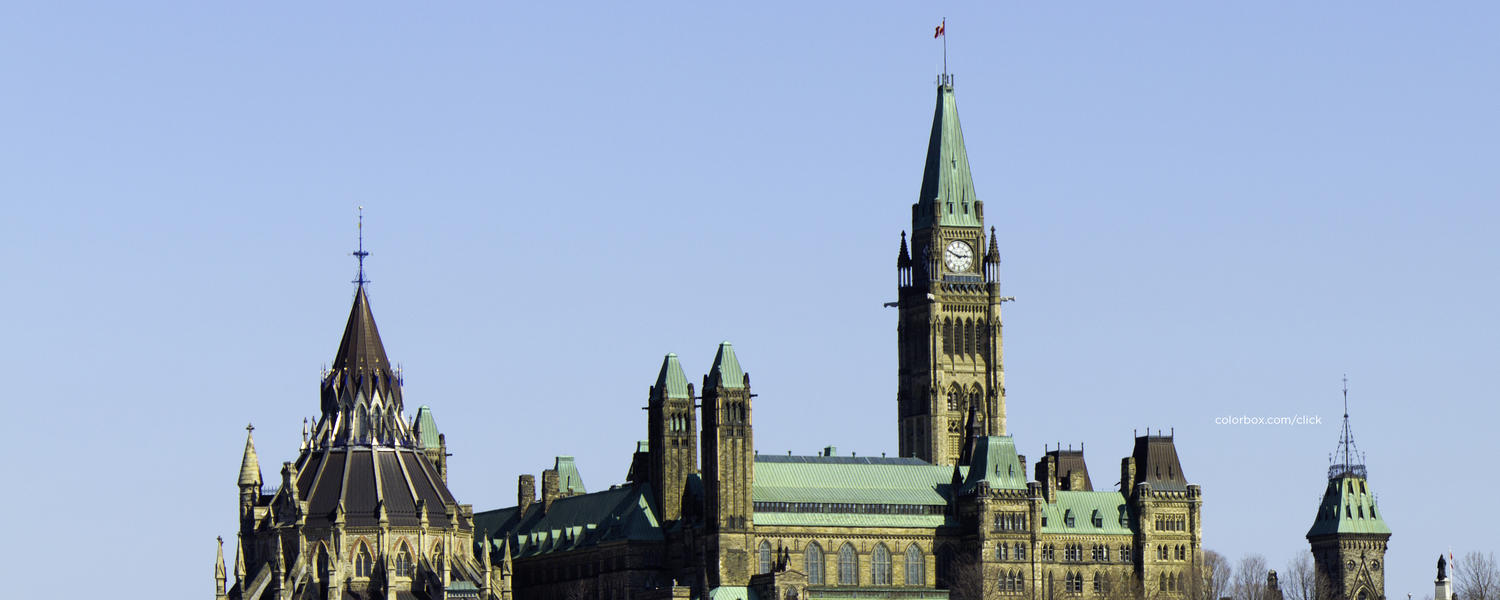
Political Science
Doctor of Philosophy (PhD)
Thesis-based program
Program overview.
The Department of Political Science has an excellent reputation for dynamic teaching and research that reflects wide-ranging ideological and intellectual diversity among our faculty. Our competitive graduate program thrives under the national and global profile of our distinguished faculty members with expertise in indigenous politics, gender and politics, Canadian politics, international security, global political economy, and the history of political thought.
Political Science faculty members publish extensively in the top Canadian and international journals and have been instrumental in shaping many of the central debates in contemporary politics in Canada and around the world.
In this program, students will be challenged to grapple with and contribute to debates spanning all major fields of study in political science.
We have an exceptional record of placing our doctoral students in academics, government, the public sector, business and law.
Completing this program
Courses: Topics may include sexual ethics, history of political thought, political theory, Canadian political process, foreign policy and more.
Candidacy: Students will complete both oral and written candidacy exams.
Research Methods: Students demonstrate knowledge of research methods or complete a course on quantitative analysis in political science.
Thesis: Students will be required to submit and defend an original research dissertation.
University instructor, government policy analyst, researcher, consultant, non-governmental organizations, international organizations.
A PhD in political science is usually considered a final degree.
Students are required to prepare a thesis and successfully defend in an open oral defense.
Four courses in a primary field and two courses in a secondary field
Learn more about program requirements in the Academic Calendar
Classroom delivery
Time commitment.
Four years full-time; six years maximum
A supervisor is required, and must agree to oversee the student's research before admission will be granted
See the Graduate Calendar for information on fees and fee regulations, and for information on awards and financial assistance .
Virtual Tour
Explore the University of Calgary (UCalgary) from anywhere. Experience all that UCalgary has to offer for your graduate student journey without physically being on campus. Discover the buildings, student services and available programs all from your preferred device.
Supervisors
Learn about faculty available to supervise this degree. Please note: additional supervisors may be available. Contact the program for more information.

Gavin Cameron

Rob Huebert

Roberta Rice

Anthony Sayers

Melanee Thomas
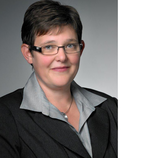
Admission Requirements
A minimum of 3.7 GPA on a 4.0 point system, over the past two years of full-time study (a minimum of 10 full-course equivalents or 60 units) of the undergraduate degree.
Minimum education
A Master of Arts in Political Science or a strong background in Political Science.
A supervisor is required, and must agree to oversee the student's research before admission will be granted.
Additional supervisors to those listed above may be found on the Political Science Research page. Contact the Political Science Graduate Program Office for more information.
- A statement of research interests
- Email confirmation from a potential supervisor who is interested in supervising your work
Work samples
Sample of written work, preferably a paper submitted for a Political Science course.
Reference letters
Test scores, english language proficiency.
An applicant whose primary language is not English may fulfill the English language proficiency requirement in one of the following ways:
- Test of English as a Foreign Language (TOEFL ibt) score of 105.
- International English Language Testing System (IELTS) score of 7.5 (minimum of 7.0 in each section)
- Pearson Test of English (PTE) score of 75, or higher (Academic version).
- Canadian Academic English Language test (CAEL) score of 70 (minimum 70 in each section)
- Academic Communication Certificate (ACC) score of A- in each course.
- Cambridge C1 Advanced or Cambridge C2 Proficiency minimum score of 200.
- Duolingo English Test and obtaining a minimum score of 145* (with no sub-score below 125*). ( temporary until Fall 2024 intake )
For admission on September 1:
- Canadians and permanent residents: Jan. 15 application deadline
- International students: Jan. 15 application deadline
If you're not a Canadian or permanent resident, or if you have international credentials, make sure to learn about international requirements
Are you ready to apply?
Learn more about this program, department of political science.
Social Sciences Building, Room 756 618 Campus Place NW Calgary, AB, T2N 1N4
Contact the Graduate Program Administrator
Visit the departmental website
University of Calgary 2500 University Drive NW Calgary, AB, T2N 1N4
Visit the Faculty of Arts website
Related programs
If you're interested in this program, you might want to explore other UCalgary programs.
Thesis-based MA
Course-based MA
Military, Security and Strategic Studies
Thesis-based MSS
Course-based MSS
Thesis-based PhD
Curious about the University of Calgary?
Located in the nation's most enterprising city, we are a living, growing and youthful institution that embraces change and opportunity with a can-do attitude.
- Graduate School
- Prospective Students
- Graduate Degree Programs
Doctor of Philosophy in Political Science (PhD)
Canadian immigration updates.
Applicants to Master’s and Doctoral degrees are not affected by the recently announced cap on study permits. Review more details
Go to programs search
The Department of Political Science offers Master of Arts and Doctor of Philosophy degree programs that are structured around five substantive fields: Canadian politics, international relations, comparative politics, political theory, and U.S. Politics.
We offer in the range of 25 graduate seminar courses per year and ample support for mentoring grad students in their professional development, through research collaboration, workshops, and colloquia. We have the most successful doctoral graduates of any program in Canada, judged by our record of placing graduates in academic positions in Canada, the United States, Great Britain, Australia, and elsewhere.
For specific program requirements, please refer to the departmental program website
What makes the program unique?
One of the key criteria that sets the Political Science department at UBC apart is the methodological breadth and diversity of research interests of faculty members, using both quantitative and qualitative methods. We have particular strengths for graduate students in:
- indigenous politics, with indigenous faculty members in two different subfields
- critical political theory and identity politics
- democratic theory and practise
- political behaviour, parties and elections
- comparative public policy and institutions
- migration, social diversity, and identity
- environmental politics
- international norms, institutions and goverance, and human security.
Quantitative Methods: we are particularly strong on quantitative methods for students using this kind of approach, with the deepest lineup of persons engaged in systematic quantitative research and the country’s most robust sequence of graduate methods courses for those students wishing to acquire a sophisticated understanding of quantitative analysis.
Regional Area Strengths: we are exceptionally strong in the study of Asian politics, the politics of the Americas, European politics, U.S. politics, and Canadian politics.
I chose UBC as it welcomes students and scholars from all horizons to share their knowledge and perspectives on academic research and important issues at the local or global level.
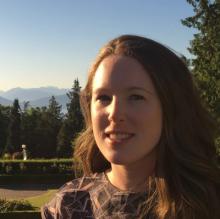
Sarah Lachance
Quick Facts
Program enquiries, admission information & requirements, 1) check eligibility, minimum academic requirements.
The Faculty of Graduate and Postdoctoral Studies establishes the minimum admission requirements common to all applicants, usually a minimum overall average in the B+ range (76% at UBC). The graduate program that you are applying to may have additional requirements. Please review the specific requirements for applicants with credentials from institutions in:
- Canada or the United States
- International countries other than the United States
Each program may set higher academic minimum requirements. Please review the program website carefully to understand the program requirements. Meeting the minimum requirements does not guarantee admission as it is a competitive process.
English Language Test
Applicants from a university outside Canada in which English is not the primary language of instruction must provide results of an English language proficiency examination as part of their application. Tests must have been taken within the last 24 months at the time of submission of your application.
Minimum requirements for the two most common English language proficiency tests to apply to this program are listed below:
TOEFL: Test of English as a Foreign Language - internet-based
Overall score requirement : 92
IELTS: International English Language Testing System
Overall score requirement : 6.5
Other Test Scores
Some programs require additional test scores such as the Graduate Record Examination (GRE) or the Graduate Management Test (GMAT). The requirements for this program are:
The GRE is required by some applicants. Please check the program website.
2) Meet Deadlines
3) prepare application, transcripts.
All applicants have to submit transcripts from all past post-secondary study. Document submission requirements depend on whether your institution of study is within Canada or outside of Canada.
Letters of Reference
A minimum of three references are required for application to graduate programs at UBC. References should be requested from individuals who are prepared to provide a report on your academic ability and qualifications.
Statement of Interest
Many programs require a statement of interest , sometimes called a "statement of intent", "description of research interests" or something similar.
Supervision
Students in research-based programs usually require a faculty member to function as their thesis supervisor. Please follow the instructions provided by each program whether applicants should contact faculty members.
Instructions regarding thesis supervisor contact for Doctor of Philosophy in Political Science (PhD)
Citizenship verification.
Permanent Residents of Canada must provide a clear photocopy of both sides of the Permanent Resident card.
4) Apply Online
All applicants must complete an online application form and pay the application fee to be considered for admission to UBC.
Research Information
Research focus.
Canadian Politics: federalism, the Canadian electoral system, the constitution, the courts, electoral reform, parliamentary institutions, political parties, Canadian public policy, Canadian political thought, voting behaviour Comparative Politics: democratization and democratic institutions, state-society relations, comparative public policy, comparative political economy, constitutional design and comparative political institutions, executive politics, separation of powers, governance, non-governmental organizations, and immigration politics International Relations: International Relations Theory, International Political Economy, International Security, International Law and Organization, International Norms, Human Security, the politics of international law, and global governance Political Theory: democratic theory, liberalism, constitutionalism, human rights, feminism, multiculturalism, nationalism, identity politics, critical theory, history of political thought.
Tuition & Financial Support
Financial support.
Applicants to UBC have access to a variety of funding options, including merit-based (i.e. based on your academic performance) and need-based (i.e. based on your financial situation) opportunities.
Program Funding Packages
We offer a full five-year funding package for our PhD students, which generally consists of a combination of UBC Four-Year Fellowships (4YFs), Department Funding, Teaching Assistantship, and Research Assistantship.
In some cases, we are able to offer additional funding in the form of RA positions, but these are contingent on several factors, including faculty members having available research funds for RAs.
The Department of Political Science will offer TA opportunities to PhDs when available in order to enhance the financial resources at students’ disposal. Moreover, we consider it an important aspect of the professional development of our PhDs to work as Teaching Assistants, at some point in their PhD program, to develop their teaching skills under the guidance of faculty members.

Average Funding
- 14 students received Teaching Assistantships. Average TA funding based on 14 students was $15,348.
- 9 students received Research Assistantships. Average RA funding based on 9 students was $8,794.
- 10 students received Academic Assistantships. Average AA funding based on 10 students was $3,461.
- 21 students received internal awards. Average internal award funding based on 21 students was $27,166.
- 4 students received external awards. Average external award funding based on 4 students was $26,500.
Scholarships & awards (merit-based funding)
All applicants are encouraged to review the awards listing to identify potential opportunities to fund their graduate education. The database lists merit-based scholarships and awards and allows for filtering by various criteria, such as domestic vs. international or degree level.
Graduate Research Assistantships (GRA)
Many professors are able to provide Research Assistantships (GRA) from their research grants to support full-time graduate students studying under their supervision. The duties constitute part of the student's graduate degree requirements. A Graduate Research Assistantship is considered a form of fellowship for a period of graduate study and is therefore not covered by a collective agreement. Stipends vary widely, and are dependent on the field of study and the type of research grant from which the assistantship is being funded.
Graduate Teaching Assistantships (GTA)
Graduate programs may have Teaching Assistantships available for registered full-time graduate students. Full teaching assistantships involve 12 hours work per week in preparation, lecturing, or laboratory instruction although many graduate programs offer partial TA appointments at less than 12 hours per week. Teaching assistantship rates are set by collective bargaining between the University and the Teaching Assistants' Union .
Graduate Academic Assistantships (GAA)
Academic Assistantships are employment opportunities to perform work that is relevant to the university or to an individual faculty member, but not to support the student’s graduate research and thesis. Wages are considered regular earnings and when paid monthly, include vacation pay.
Financial aid (need-based funding)
Canadian and US applicants may qualify for governmental loans to finance their studies. Please review eligibility and types of loans .
All students may be able to access private sector or bank loans.
Foreign government scholarships
Many foreign governments provide support to their citizens in pursuing education abroad. International applicants should check the various governmental resources in their home country, such as the Department of Education, for available scholarships.
Working while studying
The possibility to pursue work to supplement income may depend on the demands the program has on students. It should be carefully weighed if work leads to prolonged program durations or whether work placements can be meaningfully embedded into a program.
International students enrolled as full-time students with a valid study permit can work on campus for unlimited hours and work off-campus for no more than 20 hours a week.
A good starting point to explore student jobs is the UBC Work Learn program or a Co-Op placement .
Tax credits and RRSP withdrawals
Students with taxable income in Canada may be able to claim federal or provincial tax credits.
Canadian residents with RRSP accounts may be able to use the Lifelong Learning Plan (LLP) which allows students to withdraw amounts from their registered retirement savings plan (RRSPs) to finance full-time training or education for themselves or their partner.
Please review Filing taxes in Canada on the student services website for more information.
Cost Estimator
Applicants have access to the cost estimator to develop a financial plan that takes into account various income sources and expenses.
Career Outcomes
47 students graduated between 2005 and 2013. Of these, career information was obtained for 44 alumni (based on research conducted between Feb-May 2016):
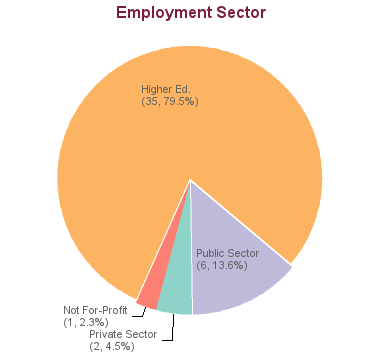
Sample Employers in Higher Education
Sample employers outside higher education, sample job titles outside higher education, phd career outcome survey, career options.
Our PhDs have been highly successful in pursuing academic and non-academic careers.
On the academic front, UBC PhDs hold tenured or tenure track positions at major universities in North America and internationally – including the University of Toronto, University of Victoria, University of Western Ontario, York University, University of Ottawa, University of Calgary, University of Pittsburgh, Georgia Tech, University of Essex, Sophia University, National University of Singapore, University of Sydney, University of Melbourne, Ritsumeikan University, University of Sheffield, Queensland University, Simon Fraser University, MacEwan University, University of Fraser Valley, University of Manitoba, Memorial University, McMaster University, and Cardiff University.
Our PhDs have held postdoctoral fellowships at a wide range of international institutions including Harvard University, Yale University, Columbia University, Vanderbilt University, University of Toronto, Queens University, Oxford University, Duke University, and others.
Many UBC PhDs have taken their doctoral training to high-level positions with government agencies, NGOs, and private-sector employers. Our students have pursued careers at Statistics Canada, the Supreme Court of Canada, the US Department of Defense Asia-Pacific Center, the International Committee of the Red Cross, Deutschebank (London), and the United Nations Commission on the Status of Women, among others.
Enrolment, Duration & Other Stats
These statistics show data for the Doctor of Philosophy in Political Science (PhD). Data are separated for each degree program combination. You may view data for other degree options in the respective program profile.
ENROLMENT DATA
Completion rates & times.
- Research Supervisors
Advice and insights from UBC Faculty on reaching out to supervisors
These videos contain some general advice from faculty across UBC on finding and reaching out to a supervisor. They are not program specific.

This list shows faculty members with full supervisory privileges who are affiliated with this program. It is not a comprehensive list of all potential supervisors as faculty from other programs or faculty members without full supervisory privileges can request approvals to supervise graduate students in this program.
- Afsahi, Afsoun (Democratic theory and practice, Gender in politics, Challenges, opportunities, and best methods of inclusion, Representation of marginalized communities in democratic decision-making processes)
- Arneil, Barbara (Identity politics, history of political thought)
- Baier, Gerald (Canadian politics, federalism, constitutional law, courts, federal-provincial relations, Constitution, federalism and public law in Canada)
- Baum, Bruce (Political Culture, Society and Ideology; critical social theory; feminist theory; critical hermeneutics; issues of cross-cultural interpretation; American political thought and cultural politics; political theories of Mill and Marx; philosophy of political inquiry; liberal and democratic theory)
- Borwein, Sophie (intersection of political economy, political behaviour, and public policy)
- Byers, Michael (International relations; Public international law (except international trade law); international law; international relations; Outer Space; Arctic; Law of the Sea; Laws of War; International Human Rights; International Environmental Law)
- Cameron, Maxwell (Political science; Political Regimes (Democracy, Monarchy, Federalism, Parliamentarism, etc.); Social Organization and Political Systems; Comparative Politics; Democratization; Latin America; Practical wisdom)
- Chowdhury, Arjun (Failed states, intervention, civil war, autocrats, revolution. )
- Coleman, Katharina Pichler (International organizations, international relations, international security/peace operations, interntional rules, noms and legitimacy, sun-Saharan Africa)
- Coulthard, Glen (First Nations politics – national; political theory )
- Cutler, Frederick (Social movements and democracy; public opinion; Political Methodology; Canadian Politics; Elections; Electoral Systems; Federalism; Academic Publishing Systems)
- Dauvergne, Peter (Social sciences; international relations; global environmental politics; sustainability governance; global South; Developing countries; transnational corporations; technology; consumption; Plastic Pollution; social movements; environmentalism; activism; deforestation)
- Doberstein, Carey (Political science and policy administration; Agencies and arms-length bodies in Canada; Public servant behavior in Canada; How citizens engage with government as part of local consultations and public engagement; Homelessness (politics, governance, policy); Local government or governance)
- Ellermann, Antje (Political science; Migrations, Populations, Cultural Exchanges; Migratory Flows; Public Policies; Identity and Transnationality; Role of Governments and Institutions; Comparative Public Policy; Migration and Citizenship)
- Harrison, Kathryn (Canadian politics, environmental politics, environmental policy, climate change, global warming, climate change policy, Canadian public policy)
- Hopkins, Vincent (Political science; Democratic theory and practice; Federalism and Local Politics; Migration Policy and Politics; Public Management; public opinion)
- Huebner, Kurt (European integration; euro and global currency regimes; international trade and fdi; sustainability and innovation policies; global macroeconomics;European politics, Money and currency regimes, politics and economics of European integration as well as on contradictions and complementarities of sustainability and international competitiveness)
- Jacobs, Alan Michael (Political science; Social Organization and Political Systems; economic inequality; Political economy; public opinion; Public Policy; Research Methodology)
- Janara, Laura (Language and symbolism especially in gendered and familial thinking, politcal theory)
- Jeong, Gyung-Ho (Political science; Social Organization and Political Systems; Congress; Foreign Policy; Immigration Policy; Legislative Politics; Public Choice; Trade Policy; US politics)
- Jurkevics, Anna (critical theory, democratic theory, and the history of German political thought)
- Kam, Christopher (Nature and evolution of parliamentary democracy, historical development of institutions)
- la Selva, Samuel (Political theory, legal philosophy)
- Li, Xiaojun (international and comparative political economy with a focus on China; Does Conditionality Still Work? China)
- Lightfoot, Sheryl (First Nations, international relations )
Doctoral Citations
Sample thesis submissions.
- A mosaic of mundane innovations : emerging powers, multinational firms, and global 5G technology rules
- Moral intuition and international order : on change, progress, and threat
- Running a rebellion : essays on armed group behavior
- Competing without parties : voter mobilization in Peru
- Negotiating gender in crisis : global norms and state power in South Sudan
- A democratic theory of hope : collective agency in uncertain times
- Essays on ethnic identity, attitude formation, and political behaviour in contemporary Southeast Asia
- Essays on the political economy of equality, development, and influence in Indonesia and Singapore
- The price of a life: the confluence of strategy and legitimacy in civilian harm compensation
- Discrimination in post-World War II naturalization policy : France and Switzerland
- The impact of investor-state arbitrations on foreign direct investment and domestic public opinion : evidence from FDI flows, elite interviews and a survey experiment
- Mainstreaming the labour market integration of immigrants in the EU : policy framework and policy impact
- Governing on the left : essays on governance and party development in contemporary Latin America
- Democracy in an uncertain world : campaign information and voter decision-making
Related Programs
Same specialization.
- Master of Arts in Political Science (MA)
Related Disciplines
- Doctor of Philosophy in Economics (PhD)
- Doctor of Philosophy in Geography (PhD)
- Doctor of Philosophy in History (PhD)
- Doctor of Philosophy in Interdisciplinary Studies (PhD)
Further Information
Specialization.
The program covers the following subjects:
UBC Calendar
Program website, faculty overview, academic unit, program identifier, classification, social media channels, supervisor search.
Departments/Programs may update graduate degree program details through the Faculty & Staff portal. To update contact details for application inquiries, please use this form .
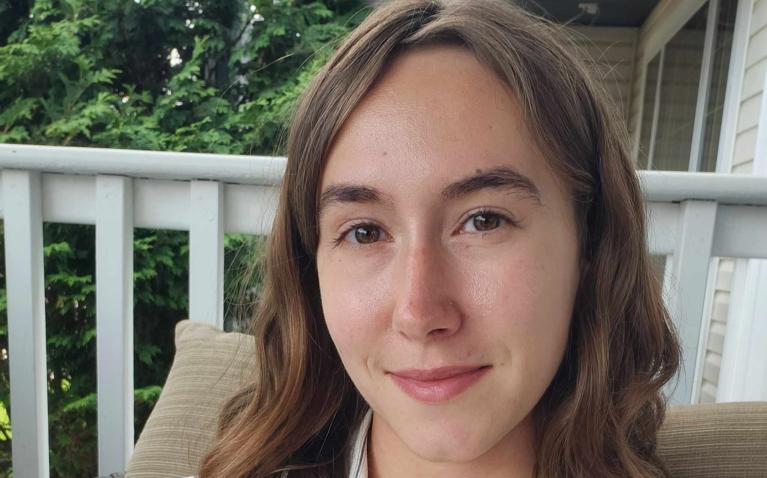
Katelynn Kowalchuk
UBC’s dedication to innovation and transforming ideas into action is what originally drew me to the university. Before deciding to attend my hometown university for my undergraduate degree, I was interested in applying to UBC’s architecture and urbanism program. Though I ultimately didn’t pursue...

Martina Zago
I really wanted to pursue my doctoral studies in Canada, where my Dad was born. I applied to UBC specifically because of the work of Professor Barbara Arneil. I had encountered her writings during my master’s degree and read her pathbreaking books on the history of liberalism and empire.
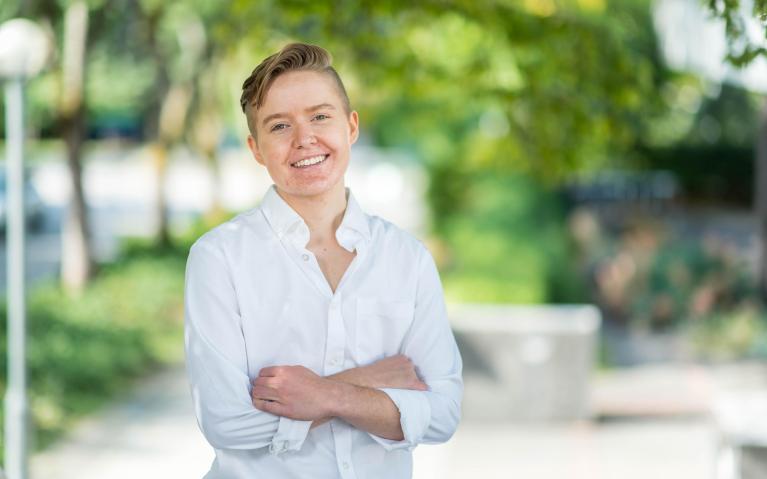
Addye Susnick
I largely decided to study at UBC because of the Department of Political Science’s strength in critical political theory and environmental politics. I was also drawn to the Social Justice Institute and various opportunities UBC offers for interdisciplinary research. Less tangibly, I liked the vibe...
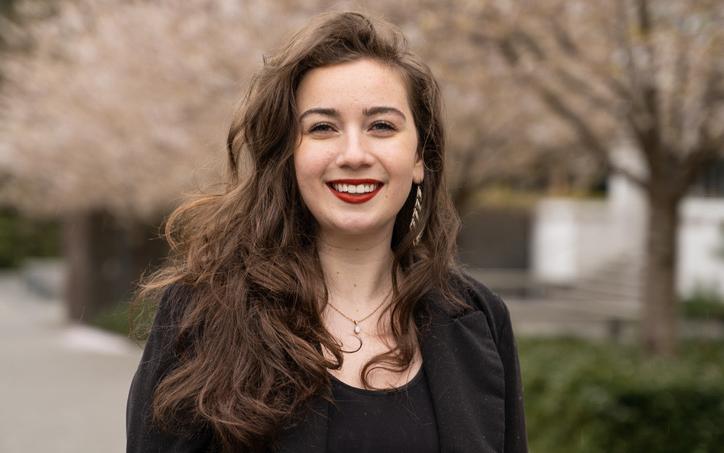
Leah Shipton
I decided to study at UBC for a number of reasons, but the main reason was because the faculty both within the Department of Political Science as well as in other departments have expertise in my research areas of interest. This made me reassured that it would be a great campus to learn and develop...

Curious about life in Vancouver?
Find out how Vancouver enhances your graduate student experience—from the beautiful mountains and city landscapes, to the arts and culture scene, we have it all. Study-life balance at its best!
- Why Grad School at UBC?
- Application & Admission
- Info Sessions
- Research Projects
- Indigenous Students
- International Students
- Tuition, Fees & Cost of Living
- Newly Admitted
- Student Status & Classification
- Student Responsibilities
- Supervision & Advising
- Managing your Program
- Health, Wellbeing and Safety
- Professional Development
- Dissertation & Thesis Preparation
- Final Doctoral Exam
- Final Dissertation & Thesis Submission
- Life in Vancouver
- Vancouver Campus
- Graduate Student Spaces
- Graduate Life Centre
- Life as a Grad Student
- Graduate Student Ambassadors
- Meet our Students
- Award Opportunities
- Award Guidelines
- Minimum Funding Policy for PhD Students
- Killam Awards & Fellowships
- Policies & Procedures
- Information for Supervisors
- Dean's Message
- Leadership Team
- Strategic Plan & Priorities
- Vision & Mission
- Equity, Diversity & Inclusion
- Initiatives, Plans & Reports
- Graduate Education Analysis & Research
- Media Enquiries
- Newsletters
- Giving to Graduate Studies
Strategic Priorities
- Strategic Plan 2019-2024
- Improving Student Funding
- Promoting Excellence in Graduate Programs
- Enhancing Graduate Supervision
- Advancing Indigenous Inclusion
- Supporting Student Development and Success
- Reimagining Graduate Education
- Enriching the Student Experience
Initiatives
- Public Scholars Initiative
- 3 Minute Thesis (3MT)
- PhD Career Outcomes
- Great Supervisor Week
- Scholarships
- Job Opportunities
- Virtual Tours
Programs to Consider
University of alberta - faculty of graduate studies & research, political science, program information, admission requirements.
* The entrance grade may change from year to year. Please contact the school for further information. * We make every attempt to provide accurate information on prerequisites, programs, and tuition. However, this information is subject to change without notice and we highly recommend that you contact the school to confirm important information before applying.
- About StudyinCanada.com
- Meet the Team
- Our Partners
- Privacy Policy
- The SchoolFinder Group
SchoolFinder.com
ScholarshipsCanada.com
- GradSchoolFinder.com
- Career-College.com
- LanguageSchoolFinder.com
- Books4Exchange.com
- SchoolFinderGroup.com
- Let's Connect
- Advertise with us
- School Administrator
Your StudyinCanada login gets you access to the whole platform!
Get matched to schools and programs, request information and learn more about career paths.
Get instantly matched to scholarships, receive deadline alerts, and find advice on scholarship applications.
Your browser does not have JavaScript enabled. Please enable JavaScript to access StudyinCanada.com. Feel free to contact us at [email protected] if you continue to experience technical difficulties.
- My UCalgary
- Class Schedule
- UCalgary Directory
- Continuing Education
- Active Living
- Academic Calendar
- UCalgary Maps
- Close Faculty Websites List Viewing: Faculty Websites
- Cumming School of Medicine
- Faculty of Arts
- Faculty of Graduate Studies
- Faculty of Kinesiology
- Faculty of Law
- Faculty of Nursing
- Faculty of Nursing (Qatar)
- Faculty of Science
- Faculty of Social Work
- Faculty of Veterinary Medicine
- Haskayne School of Business
- School of Architecture, Planning and Landscape
- School of Public Policy
- Schulich School of Engineering
- Werklund School of Education
- DEPARTMENT OF POLITICAL SCIENCE
- Future Students
- Undergraduate
- International Indigenous Studies
- International Relations
- Political Science
- How to Apply
- International Students
- Indigenous students
- Why UCalgary?
- Internationalize your degree
- MA and PhD programs at a glance
- MA Thesis-based program requirements
- MA Course-based program requirements
- PhD program requirements
- Meet our graduate students
- Recent MA Theses
- Recent PhD Theses
- Testimonials
- Our placements and careers
- Fees and funding
- Indigenous Students
- Student Life
- Program FAQ’s
- Current Students
- Current undergraduate students
- Political Science Program Requirements
- BA Honours in Political Science
- BA in Political Science
- Political Science and Bachelor of Education
- Minor in Security Studies
- Interdisciplinary Program Requirements
- International Relations Program
- BA in International Indigenous Studies
- Minor in International Indigenous Studies
- Student Advising
- Student Services
- UCalgary Awards and Scholarships
- Departmental Undergraduate Scholarship and Awards
- Meet Our Graduate Students
- MA Program Requirements
- MA Thesis-Based
- MA Course-Based
- MA Progress Reports
- PhD Program Requirements
- PhD Candidacy
- PhD Dissertation
- PhD Progress Reports
- Program Policies
- Program Funding, Fee, and Payment Policies
- Appointment of Supervisors and Other Policies
- Student Associations
- Departmental Graduate Scholarship and Awards
- Newly Admitted
- Manage My Program
- Graduate Calendar
- Forms and Documents
- MyGradSkills
- Research By Faculty
- Our researchers
- Research By Cluster
- Blades, Bombs, Bullets, and ‘Bots
- Canadian Political Institutions
- Elections and Representation
- Environmental Politics
- Gender and Politics
- Human Rights Violations and Protections
- Latin American Politics
- Legal Regimes and Politics
- Public Opinion
- Theorizing Beyond The Liberal Order
- Research By Field
- Canadian Politics
- Comparative Politics
- Indigenous Politics
- Political Theory
- Work with us
- High School Model UN at Ucalgary
- Political Science Directory
- Full-time faculty
- Sessional instructors
- Adjunct instructors
- Graduate students
- Postdoctoral scholars
- Emeriti and retired professors
Political Science full-time faculty
Results for:

Jean-Christophe Boucher
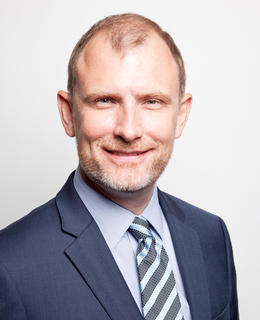
Gavin Ian Cameron
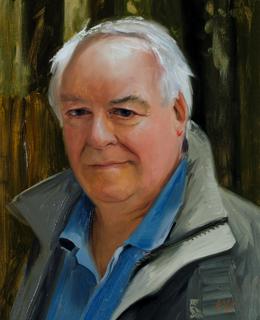
Fraser (Barry) Cooper

Antonio Franceschet

Susan Franceschet
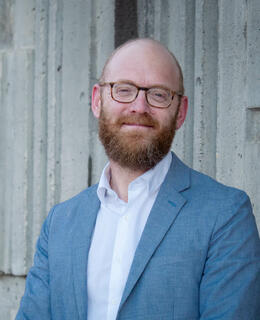
Joshua D. Goldstein
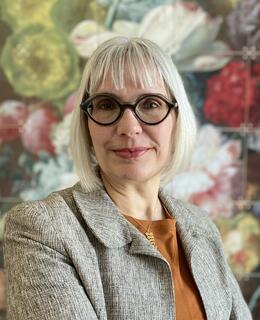
Maureen S. Hiebert
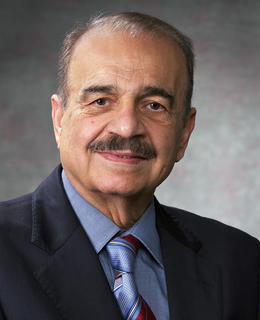
Tareq Yousief Ismael
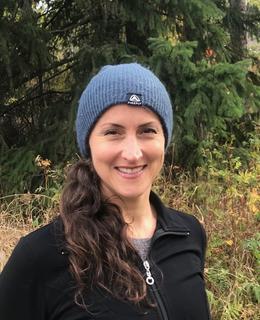
Adela Kincaid

Pablo Policzer

Erica Rayment
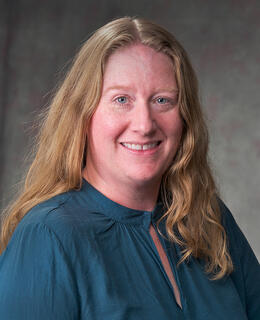
Roberta Rice
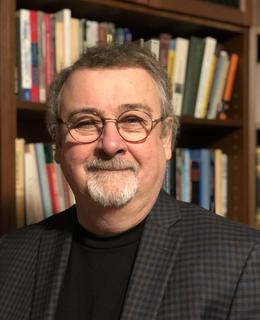
Anthony Michael Sayers
Richard Sigurdson
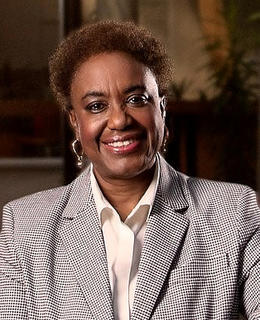
Malinda Smith
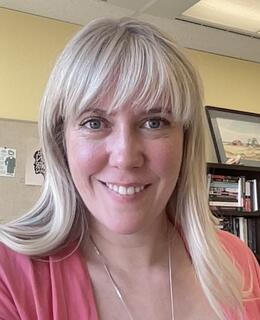
Melanee Thomas
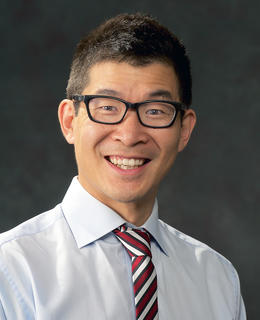
Kim-Lee Tuxhorn

Daniel Voth
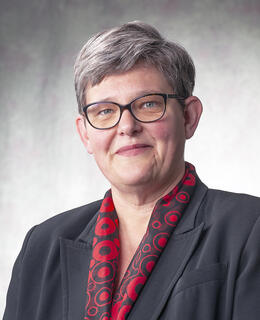
Accessibility
- Job Opportunities
- Intranet (Restricted)
- Program Overview
- Program Information
- Course Information
- Program Counselling
- Prospective Students
- Awards & Scholarships
- Exchange Opportunities
- Internships
- Possible Careers
- Student Association
- Undergraduate Journal
- Graduate Studies
- Methods Training
- Research Areas
- Funding & Scholarships
- Graduate Handbook
- Graduate Association
- Graduate Program Alumni
- Program Resources
- Diploma (DPA)
- Masters (MPA)
- Administration
- Research Funding
- Recent Publications
- Facilities & Labs
- Library & Resource Centre
- Fellows/Postdocs/Visitors
- MA Students
- PhD Students
- Media Enquiries
- Undergraduate
- Local Govt.
- PhD Program
- Application Process
The PhD program is a full time program. It is designed to train the next generation of top professors and policymakers in Canada. We offer a strong, research-intensive curriculum with a focus on giving our students the very best training in quantitative and qualitative methods in the country. Rather than admitting students based on their potential fit with a supervisor, we try to admit only the most promising students and encourage them to develop their research interests, identify gaps in the literature, diversify their theoretical knowledge, and acquire a broad range of quantitative and qualitative methodological tools to publish in the very best journals in their fields.
Our overarching philosophy is built around mentorship. We take seriously the need to help students figure out how to publish and we want them to finish our program with a strong publication record so they are highly competitive for the job market. To these ends, we offer students: research assistantships, co-authorship opportunities, the opportunity to develop publishable papers in our courses and during the summer publishing workshop, and the opportunity to present papers internally for feedback prior to conference presentations and submissions to a journal. We provide professional development workshops that teach the "ins and outs" of being a political scientist, and we provide support through highly competitive funding packages and special funds to subsidize costs related to data collection, additional methods training, and conferences. Students are also given opportunities to co-teach or teach their own course in hopes of building up their teaching experience and CV.
You do not need to contact or obtain a supervisor before applying to the program . The minimum requirement for admission is an MA in Political Science with superior standing and a statement of research interest that demonstrates your potential for success as a PhD student in our program. We want students who are committed to being challenged and are willing to learn new topics, theories, and methods. While you are welcome to identify potential supervisors in your application, you are not required to. Choosing a supervisor occurs after you have entered the program, completed your coursework, and attended departmental seminars and workshops.
Our Graduates
Our doctoral students are active members of the department and the political science community, publishing articles in American Political Science Review, Canadian Public Administration , Critical Review of International Social and Political Philosophy , Governance , International Studies Perspective , Party Politics , Politics , Groups and Identities, Representation, Res Publica , and The International Indigenous Policy Journal .
They have presented papers at the annual meetings of the Canadian Political Science Association , the International Studies Association , and the American Political Science Association , to name a few. They have also attended or served as teaching assistants at the Inter-university Consortium for Political and Social Research (ICPSR), the Laurier Summer Institute of Research Methods , and the Workshops on Social Science Research (WSSR).
Our graduates have secured academic positions at Carleton University , Durham University , The University of Manitoba , The University of Saskatchewan , and The University of Winnipeg , as well as prominent positions in the public and private sectors.
PhD Program Progression Requirements

In order to progress through the PhD program, students must fulfill the following requirements:
- 9502A, 9590A, 9591B*, 9593B (required PhD courses)
- 9 elective courses (must include at least 3 of the following core Political Science courses: Political Theory, International Relations, Canadian Politics, Urban Political Economy, Comparative Politics, Maximum Likelihood Estimation);
- Mandatory Publishing Workshop in the summer of the first year;
- Comprehensive exams in the summer of the second year (view guidelines in the graduate handbook);
- Thesis proposal completed in the third year;
- PhD thesis.
The PhD thesis is a major piece of research and writing on a subject chosen by the candidate and approved by the department. It is undertaken under the supervision of a faculty member in the department, with the assistance of a committee. We encourage students to not only rely heavily on their supervisory committee during their PhD, but also to draw on the collective expertise of the entire faculty. As a department, we believe that student success requires the entire department to work together to support our students, and we encourage our PhD students to get to know all faculty members and draw on their expertise and advice throughout their degree. *Students who will be completing a Political Theory Thesis are exempt from having to take 9591B but still must take a total of 13 courses.
Department of Political Science Social Science Centre, Room 7335 London, Ontario, Canada, N6A 5C2 Tel: 519-661-3266 [email protected] Privacy | Web Standards | Terms of Use | Accessibility
Find an Expert
Political Science Association
Political Science Intranet
PhD program
Waterloo’s PhD in Political Science is the most innovative program of its kind in Canada, offering students considerable flexibility in core research activities, formal professional development for both academic and non-academic career paths, an experiential option (including access to the world’s largest co-op program of its kind, or other internship/placement experiences) and a teaching option (including mentored teaching experiences and formal pedagogical training).
Students will have the opportunity to work with internationally and nationally-renowned scholars in the discipline.
Students have the option of choosing from three major fields: Canadian Politics , International Relations , and Political Economy . For their secondary field, students may choose either a second major field or create their own ‘custom concentration’ based on coursework in a designated area of the discipline (for example: comparative politics, democratic theory, public policy, gender and politics) or from a subfield of their major field (for example: security, rights, etc.).
The program includes one year of coursework featuring a mandatory, team-taught methodology course, two courses in the student’s major field, two courses in the student's second major field or custom concentration, and one elective. Students must also complete the PhD Professional Development Seminar , a series of half-day seminars offered by the Department and additional workshops delivered by campus units like the Writing and Communications Centre , Centre for Career Development , or Centre for Teaching Excellence . Professional Development training gears students to both academic and non-academic job markets, fostering skills enhancements in research methods, communications to non-academic audiences, fieldwork, conferencing best practices, and career planning.
The capstone research project (the PhD thesis) requires students to complete and defend a thesis proposal. Students may choose a traditional dissertation (ranging from 200-350 page in length), or a ‘publication model’ consisting of at least three sole-authored (submitted, in press, or published) works and including an original introduction, conclusion and any necessary bridging chapters to reflect a coherent project. In rare cases, and with the approval of the student’s supervisor and the Department Graduate Committee, students may opt for a non-traditional thesis formal that meets the standards of an original doctoral-level contribution to knowledge but in a different form (for example, a documentary). The Department is especially cognizant of the potential for alternative approaches to knowledge generation and dissemination, such as Indigenous approaches to knowledge, as something to be accommodated on a case-by-case basis. Regardless of format, the completed thesis will be subject to an oral defence before a committee, including the supervisor(s), two other political science faculty members, an internal-external examiner from another department/program at Waterloo, and an external examiner.
For further details on the program, please visit the Graduate Studies Academic Calendar .
Political science (PhD)
The PhD program takes about 4 years to complete following an MA degree. In first year, you will focus on coursework: 6 graduate courses including POLI 600 (Professional Development Seminar).
At least 1, but no more than 2, of the graduate courses may be taken outside the Department of Political Science. Two of the other courses must be "field" seminars and are designed to prepare you for candidacy examinations .
PhD students normally take 2 candidacy examinations during the second year of doctoral study and then prepare and defend a dissertation proposal. Students should aim to have their dissertation proposal approved before the end of their second year of study. Once approved, you will spend about 2 years writing your dissertation.
Learn about research areas for PhD students in the Department of Political Science
Meet some of our current grad students
Learn everything you need to know about becoming a UVic grad student , from finding a supervisor to submitting your application.
Political Science PhD application FAQ
Political Science PhD admission requirements
Every year, UVic awards $12 million to help fund graduate students through a combination of:
- UVic fellowships and awards
- teaching assistantships
- research assistantships
Most of our students also receive external awards and scholarships, and financial aid and bursaries. Consideration for funding is automatic. A funding offer is normally included with an offer of admission.
Funding and employment for graduate students
Forms & resources
- Grad student handbook
- Thesis & dissertation
- Graduate Studies forms & policies
- CAPP report
This website stores cookies on your computer. These cookies are used to collect information about how you interact with our website and allow us to remember your browser. We use this information to improve and customize your browsing experience, for analytics and metrics about our visitors both on this website and other media, and for marketing purposes. By using this website, you accept and agree to be bound by UVic’s Terms of Use and Protection of Privacy Policy . If you do not agree to the above, you must not use this website.

IMAGES
COMMENTS
All PhD students should also select two areas of specialization from among: Canadian Politics, Comparative Politics, Gender and Politics, International Relations, and Political Theory. The remaining courses should be selected from 500 and 600-level courses in Political Science at the University of Alberta. In year 2, doctoral students complete ...
Graduate Studies. We are Canada's premier institution for the study of Gender and Politics, Critical Political Economy, and the politics of Canada and Alberta. There are also clusters of faculty working on more specific themes: Indigenous politics and decolonization; China and the world; the politics of resource extraction and environmentalism ...
The Department's minimum admission requirements are an undergraduate degree with an average of 3.3 in the last two years of undergraduate work (or graduate work) at the University of Alberta, or an equivalent qualification from a recognized institution. For all programs, an undergraduate degree in Political Science or close cognates such as ...
Political science trains you to apply concepts and theory to real-world problems, to synthesize disparate and complex ideas, to communicate in diverse ways and to debate ideas passionately and respectfully. We are committed to teaching students to learn, so that they're equipped to be engaged citizens and leaders, able to respond with others to ...
How to Apply. All applications must be submitted on line through the Faculty of Graduate Studies online application system. The online admission application system will be available starting October 1st and will have a deadline of January 15. Applications, including all supporting documentation must be submitted by 23:59:59 (MST) on January 15.
Applicants must have a minimum grade point average (GPA) of at least 3.3 (when converted to the University of Alberta's grading scale) or equivalent in the last 60 graded credits of academic studies. Students whom the admissions committee considers promising but insufficiently prepared for graduate work in Political Science or Policy Studies ...
The University of Alberta Undergraduate and Graduate Calendars are its official repository for degree, program, and course requirements, along with the rules, regulations, policies, fees, and information about financial aid and scholarships. ... A PhD student with an MA or equivalent in political science is normally required to complete a ...
A PhD in political science is usually considered a final degree. ... The City of Calgary is also home to the Métis Nation of Alberta (Districts 5 and 6). The University of Calgary is situated on land Northwest of where the Bow River meets the Elbow River, a site traditionally known as Moh'kins'tsis to the Blackfoot, Wîchîspa to the ...
About. The Department of Political Science at University of Alberta offers programs leading to the Master of Arts and Doctor of Philosophy in Political Science, and the Master of Arts in Policy Studies. University of Alberta. Edmonton , Canada. Top 0.5% worldwide. Studyportals University Meta Ranking. 4.1 Read 159 reviews.
Are you interested in issues relating to citizenship and human rights, and considering doing a PhD in Political Science at the University of Alberta in the Fall of 2020? Dr. Yasmeen Abu-Laban, Canada Research Chair in The Politics of Citizenship and Human Rights, can support your programme in the Department of Political Science at the ...
POL S 902 - Policy Studies Capstone Seminar. Integrate and synthesize public policy concepts, principles, and theories and apply critical thinking and communication skills in a project of relevance to the study and practice of policy studies. Prerequisite: consent of Department. University of Alberta: [email protected].
I am a professor in the Department of Political Science at the University of Alberta (CANADA). I earned a B.A. in history from Brigham Young University, an M.A., also in history, from the University of Alberta, and earned a PhD from the Paul H. Nitze School of Advanced International Studies of the Johns Hopkins University (Johns Hopkins/SAIS) in Washington, D.C.
POL S 429 - Government and Politics of Alberta. ★ 3 (fi 6) (EITHER, 0-3S-0) The study of selected aspects of Alberta government and politics. Topics may range from political institutions, through political parties, to areas of public policy. Prerequisite: One of POL S 224, 225 (or 220) or Department consent.
The Department of Political Science offers Master of Arts and Doctor of Philosophy degree programs that are structured around five substantive fields: Canadian politics, international relations, comparative politics, political theory, and U.S. Politics. We offer in the range of 25 graduate seminar courses per year and ample support for mentoring grad students in their professional development ...
The University of Alberta is one of the top research universities in Canada and the world, with 7,000 graduate students from over 150 countries. The Department of Political Science, indisputably ranked among the finest in Canada, is home to nationally and internationally celebrated scholars and teachers and a diverse community of faculty ...
With over 100 years of history, the University of Alberta (U of A) is one of the top research-intensive universities in Canada. Serving more than 37,000 students, the U of A is also one of the largest universities in Canada.
University of Alberta, Department of Political Science graduate programs.
The Political Science at the University of Alberta graduate program draws on the diverse talents of our 28 full-time faculty members. With a graduate student body of around 70, we offer a collegial and supportive environment for students who are committed to the advanced study of power, governance, and political life. Career
Political Science Directory. Political Science Directory; Political Science Directory; Full-time faculty; Sessional instructors; Adjunct instructors; Graduate students; Postdoctoral scholars; Emeriti and retired professors
The PhD program is a full time program. It is designed to train the next generation of top professors and policymakers in Canada. We offer a strong, research-intensive curriculum with a focus on giving our students the very best training in quantitative and qualitative methods in the country. Rather than admitting students based on their ...
PhD program. Waterloo's PhD in Political Science is the most innovative program of its kind in Canada, offering students considerable flexibility in core research activities, formal professional development for both academic and non-academic career paths, an experiential option (including access to the world's largest co-op program of its ...
Political science is the study of power and governance. You will have the opportunity to learn from award-winning teachers and leading international researchers who will challenge you to think broadly about power and the responsibilities of engaged citizenship. Through innovative teaching methods, such as participating in simulations and ...
Required Courses. A minimum of 18 units in 200-level POL S, of which 15 units must be from. POL S 201 - Introduction to Indigenous Politics. POL S 211 - Introduction to History of Political Theory. POL S 212 - Introduction to Contemporary Political Theory. POL S 224 - Canadian Government.
Program Requirements. Honors in Political Science requires a minimum of 54 units to a maximum of 60 units in Political Science (including junior courses). With the prior approval of the Department Advisor, 6 units in an "associated discipline" may be presented in lieu of 6 units in Political Science; in such cases, a minimum of 48 units in ...
For the minor in Political Science, students must obtain a minimum of 15 units at the senior level in Political Science (including at least 6 units at the 300- or 400-level) and a maximum of 24 units. Courses labelled SC PO as well as ETCAN 360 , SC PO 304 , SC PO 305 , SCSOC 225 are allowed in the minor.
The PhD program takes about 4 years to complete following an MA degree. In first year, you will focus on coursework: 6 graduate courses including POLI 600 (Professional Development Seminar). At least 1, but no more than 2, of the graduate courses may be taken outside the Department of Political Science. Two of the other courses must be "field ...
MA in Political Science PhD Program MA in Policy Studies How to Apply Admission Requirements Application FAQs Financial Support Awards & Scholarships Awards & Scholarships ... Political Science University of Alberta. 10-16 Henry Marshall Tory Building Edmonton, Alberta, Canada T6G 2H4